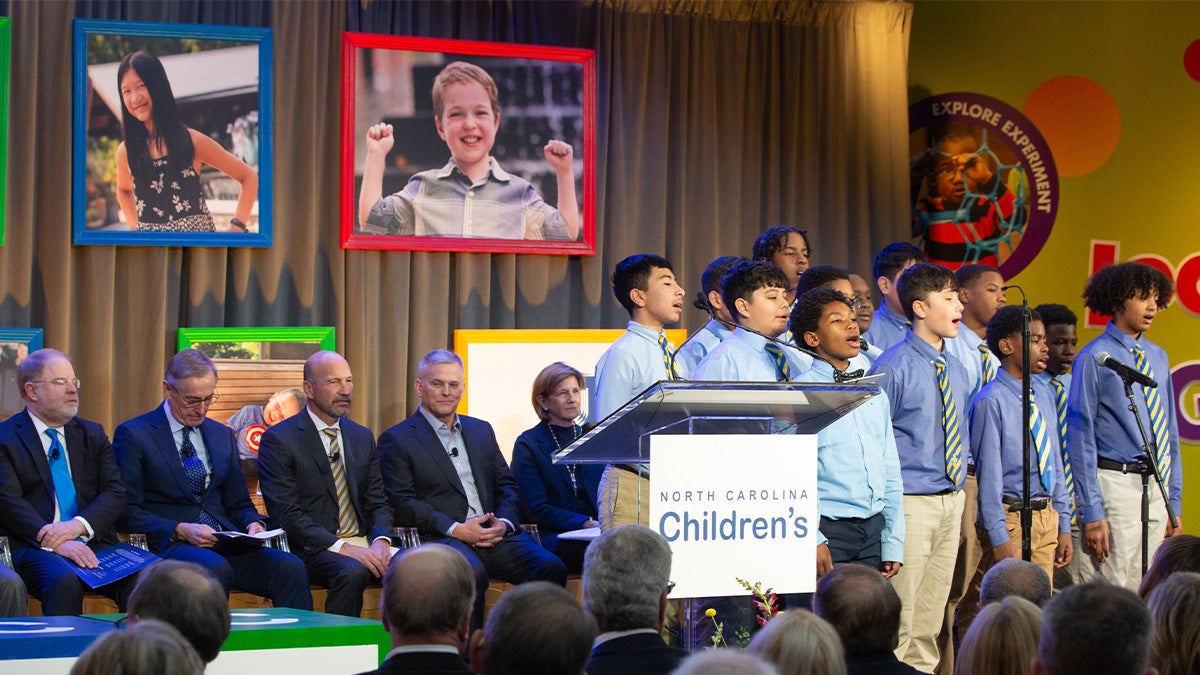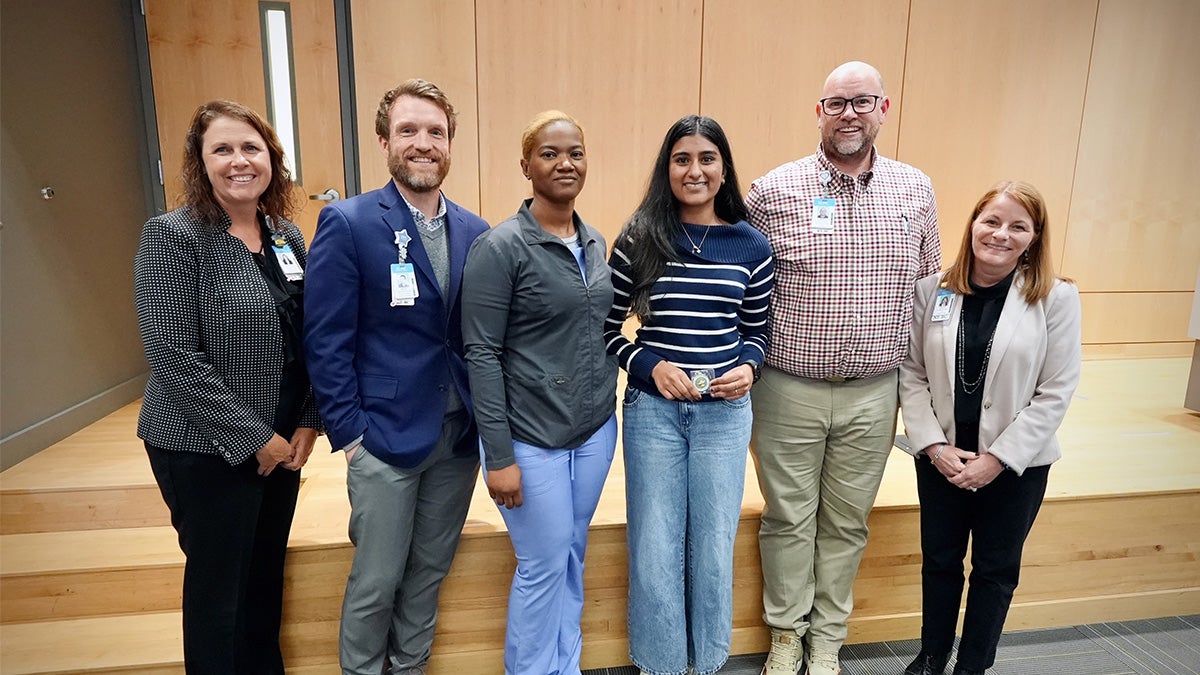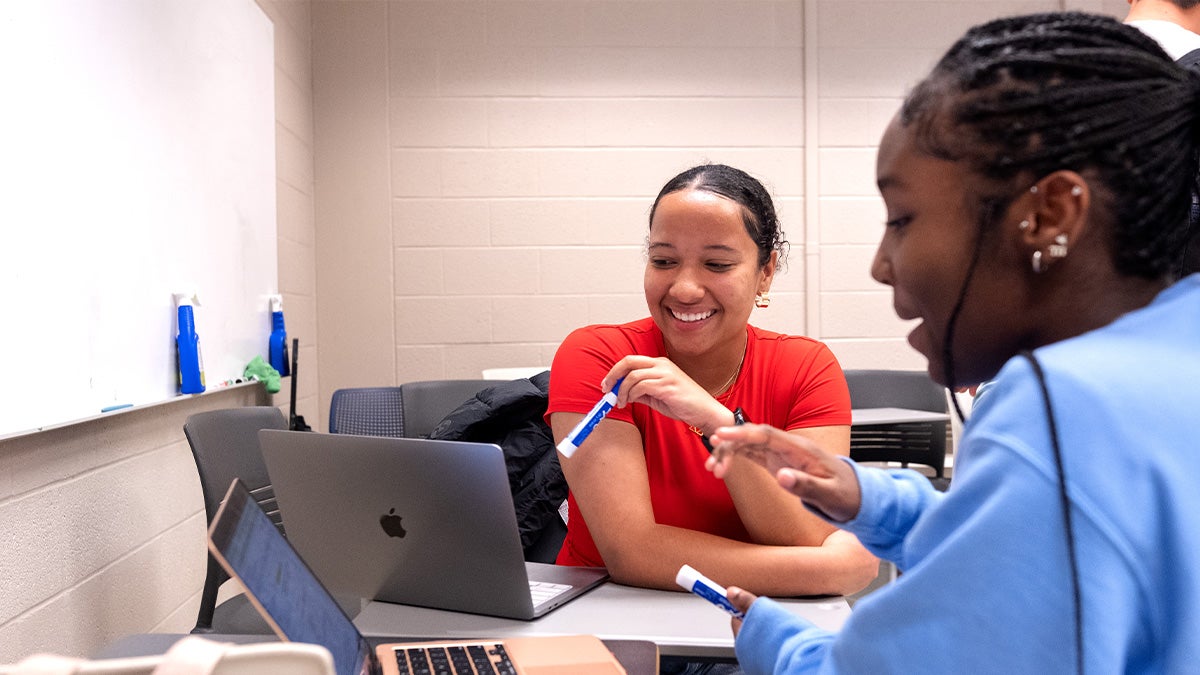Winston Center studies how technology reshapes brains
The pan-University center is one of the few in the U.S. to look at social media’s impact on all facets of adolescent well-being.

With a new name and a new institutional home, the Winston Center for Technology and the Developing Mind is taking its next step.
Previously housed within the UNC College of Arts and Sciences as the Winston National Center on Technology Use, Brain and Psychological Development, the center is now an interdisciplinary pan-campus unit within the Office of the Vice Chancellor for Research. Strategic planning, infrastructure and support from UNC Research will help the center capitalize on strengths across the University — bringing diverse perspectives to a centralized hub.
The interdisciplinary core of the center is one of its greatest strengths. Bringing together Carolina’s experts in areas such as neuroscience, psychology, education, public health and psychiatry, the center has assembled one of the largest teams ever to research how being online affects adolescent brains.
It’s one of the only centers in the U.S. to look at the role of social media on all facets of adolescent well-being: social, biological, behavioral and emotional development.
The center has two academic co-directors. One is Mitch Prinstein, John Van Seters Distinguished Professor of Psychology and Neuroscience and chief science officer of the American Psychological Association. Prinstein has studied health risk behaviors among adolescents for more than 25 years.
“We know the way our children are interacting with technology now could have remarkable consequences for their development,” he said. “The research we take on now and how we translate that research into practical resources can ultimately help set our children up for future success.”
The other academic co-director is Eva Telzer, professor of psychology and neuroscience. Telzer is an internationally recognized expert in youth brain development and how changes in the brain may make youth particularly sensitive to their social media experiences.
“The teenage years mark rapid brain development that makes teens highly sensitive to their environment. Technology-mediated contexts have the potential to ‘rewire’ the developing brain,” Telzer said. “Scientific research, like ours, will hopefully create the impetus for more monitoring, oversight and regulation of social media platforms.”
Beyond the lab
Winston Center experts are also dedicated to making their work publicly accessible. Their Handbook on Adolescent Digital Media Use and Mental Health is open access, providing in-depth analysis for teens, parents and even legislators. Research from the handbook was used to inform the Kids Online Safety Act, legislation approved by the U.S. Senate in 2024.
It’s just one example of how the center works with nonprofits and governmental agencies to incorporate practical, feasible and legal perspectives — connecting science to action.
“Understanding the profound impact of social media on developing brains is a pressing societal challenge that demands insights from across disciplines,” said Penny Gordon-Larsen, vice chancellor for research. “This partnership reflects our commitment to pan-campus research collaboration, and we look forward to working with Winston researchers to transform their findings into meaningful action that benefits families, educators and policymakers regionally and nationally.”
The center’s academic co-directors have spoken at the World Economic Forum and testified at the U.S. Senate and within several state legislative offices. They’ve worked with federal agencies to communicate the science on technology and adolescent development. The center recently became the research core for the U.S. Phone-Free Schools movement, partnering with schools that have applied phone restrictions to investigate the impacts in the classroom.
As screens continue to dominate our lives, understanding their impact on adolescent development is critical.
“Technology is here to stay,” said Prinstein. “Our goal is to understand how people can get the most benefit from these new tools and avoid whatever risks there may be to academic, psychological, biological and social development.”







